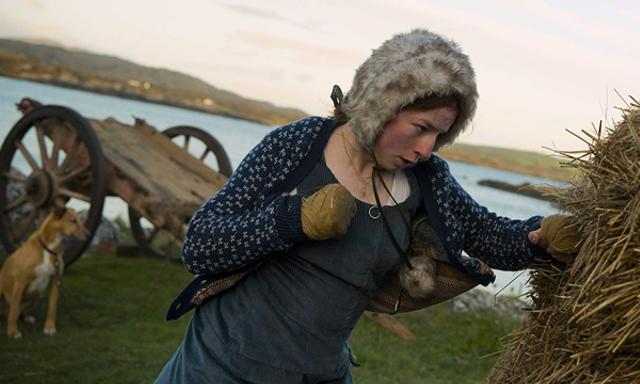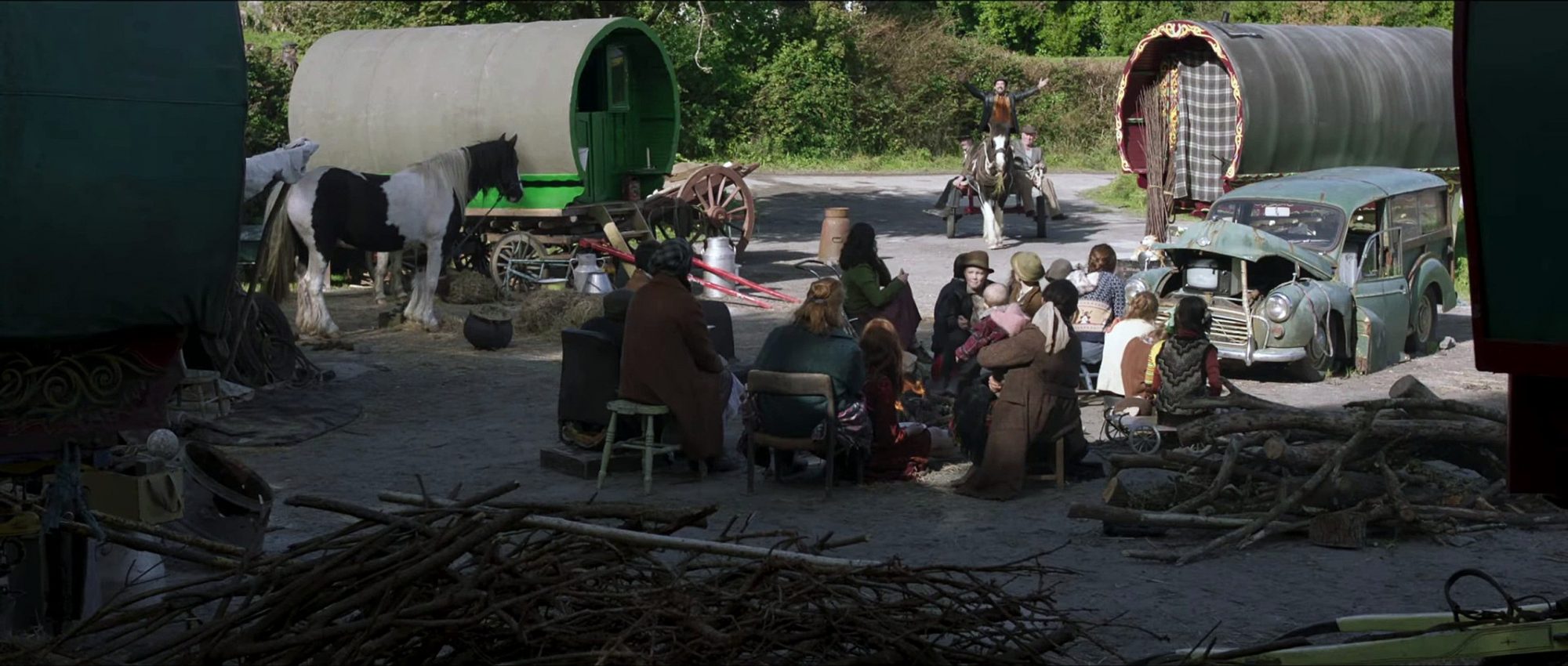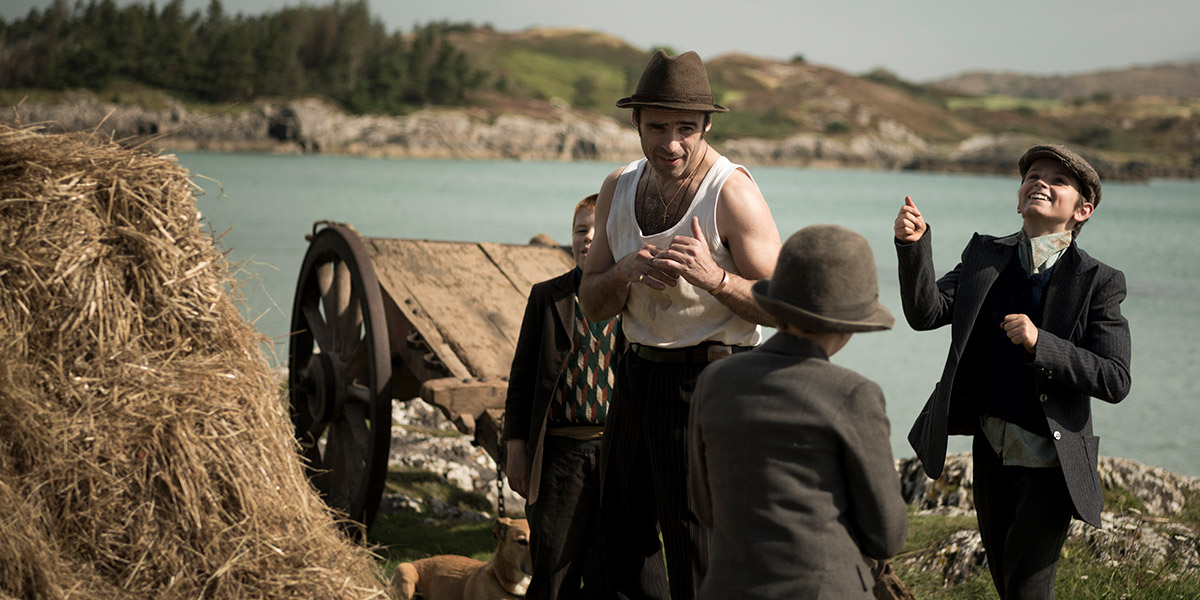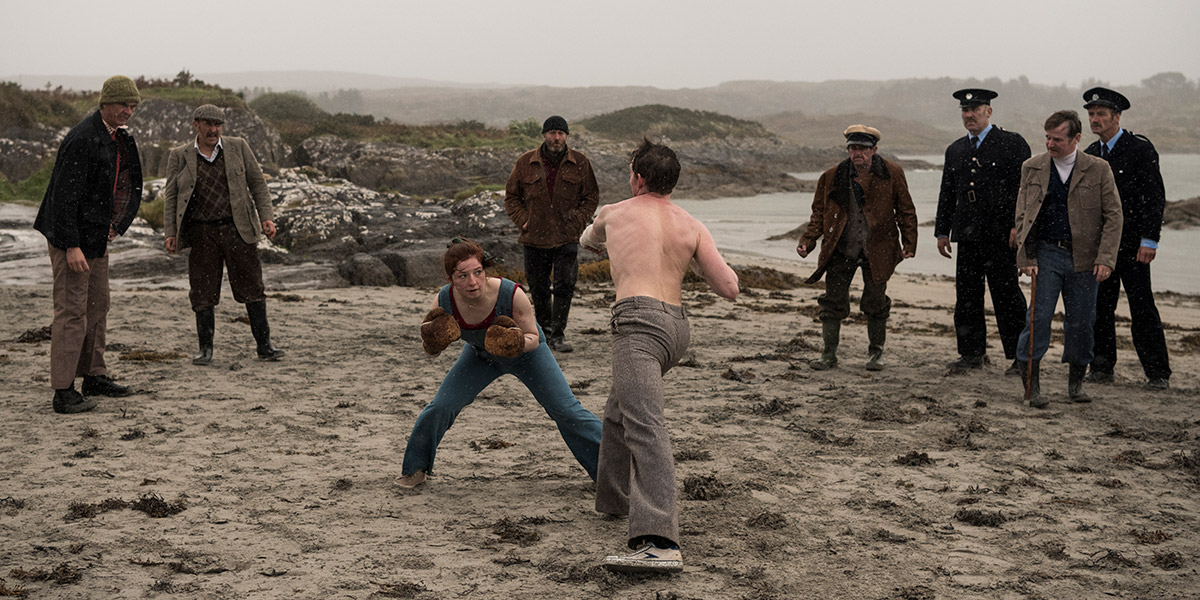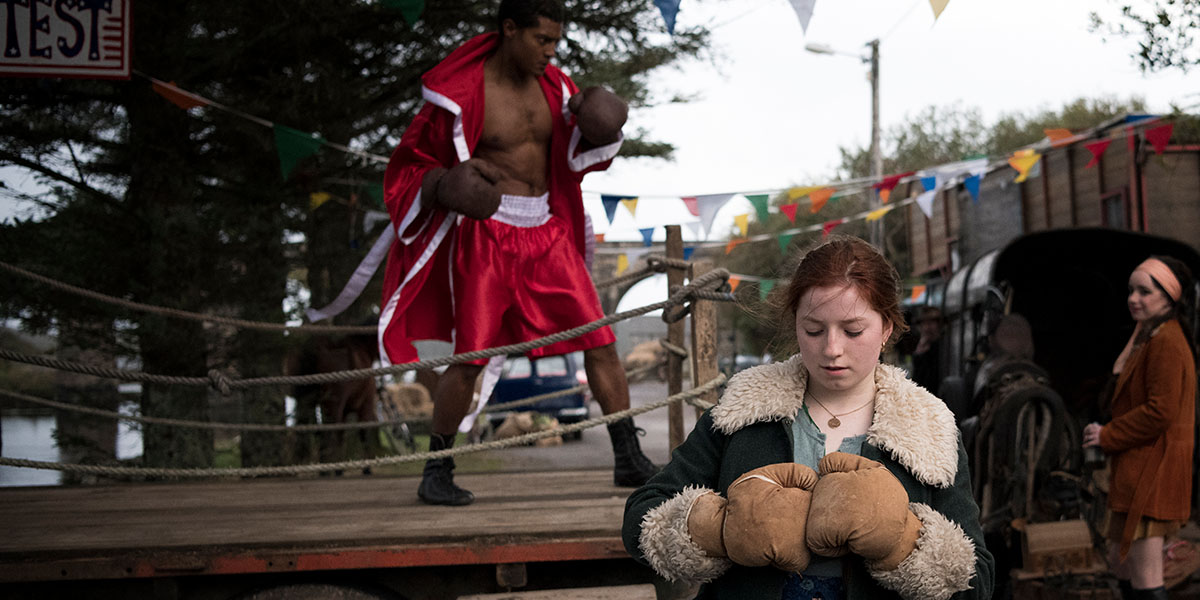Set in the 1970s, ‘Float Like a Butterfly’ follows Frances (Hazel Doupe), a teenage girl from the Travelling community. When her father (Dara Devaney) is released from prison, Frances finds herself pulled away from her dream of becoming a boxer.
'Float Like a Butterfly' is the second feature of Irish director Carmel Winters and quite unlike anything you've seen before. It's been compared to 'Billy Elliot' in early reviews. It premiered at TIFF, where it won the FIPRESCI Discovery Prize.
Carmel spoke to us about the representation of travellers in the movie and what message she hopes audiences will take from it. She also talked about the discovery of the film's extraordinary lead, Hazel Doupe.
The traveller community are front and centre in this film. I was wondering how you managed the balance of not reinforcing stereotypes while also staying true to their culture?
I think in all cultures, you're in the vicinity of the human and thus you're in the vicinity of great contradiction. So if you take the words “settled people are”, like a school exercise, and try to complete the sentence, you won’t find a sentence that’s true of all settled people. And the same goes for travellers.
I did my research but I’d also had lots of contact with travellers over the years. I found that if asked 20 different travellers to describe what life, their culture, their traditions are like, I'd get 20 different answers. It’s a complete fallacy that traveller culture is something that can be described and prescribed. So we had to dive deep and trust the human to human to human.
I could have had a settled lead character with a settled family. But I thought, well, it’ll be much more powerful for all of us if we can actually have a traveller girl represent all of us, not representing travellers, but representing every single underdog that ever was. Anybody who feels like they just had to struggle so hard, and struggled with the people they love for the people they love.
What is ‘Float Like a Butterfly’ about, for you?
What I think I've done with ‘Float like a Butterfly’ is dug deep into family dynamics, family dynamics that could be true of any family anywhere in the world: a father and daughter who started out in life very much as allies, a fantastic boxing team, almost a spectral of Katie Taylor and her father in the early days, to being wrenched apart through a very violent episode. Then they come together after eight years, when the system has already broken him. What has happened to him has changed and injured him in such a way that now his daughter is really the stronger party. And now instead of her greatest ally, he has become her greatest obstacle.
I think this is a common story in many girls’ lives, dealing with fathers who, for whatever reason, let their own weakness or disappointment in life circumscribe the possibility and potential of their own daughters. I felt that story was absolutely universal and more needed now than ever. And I feel like there is nothing niche or small about a story like that because it's delving deep into female power. We need women’s power and we need it more than ever. I think there are parts of our society that are very threatened by the story of how amazing women are at not just surviving, but coming through survival into being extraordinary, powerful, and therefore dangerous women.
In Ireland, we’re going through this cultural moment in women’s boxing, not just with Katie Taylor but Kellie Harrington as well. Did seeing Irish women rising in the ranks of the boxing community help inspire ‘Float Like a Butterfly?’
You know, I expect the film wouldn’t exist at all except for Katie Taylor. I started writing it when she was coming up the ranks and Toma McCullim [production designer] was telling me to pay attention to this young woman. I was never a boxing fan, but I learned so much about the heart of boxing. There’s a side to boxing that I think a lot of people, like me, would have missed. I don't enjoy watching people beat each other. But I learned so much about it.
There was a woman who came to our screening in Boston and she said that she was a young mother in her 30s with two beautiful children but felt lost. Then she took up boxing and became a teacher and everything changed. She said “boxing is love” and I was so blown away by that because I was actually originally going to name the film “A Fistful of Love.”
And there is a lot of love in Frances, the main character. She’s fighting for the love of her father, even though she has to fight him to love him. I think when she boxes, it’s from her heart.
What have the responses to the film been like?
This week we had the Dublin premiere screening with a number of traveller women in the audience and they were just so grateful that we weren’t just playing out the “traveller”, in inverted commas. They were so tired of hammering out an old accent, putting on a certain way of being – they, by and large, don’t identify with what people consider to be a convincing traveller.
And I'm out there now with the women in the audience, leading the men in the audience. It's not that it's women only, but like in Busan and Korea, with our first screening, so many of the women that went came back with their father the next day. The fathers were hugging me and so emotional. Crying, because they're seeing what so many men have lost as fathers – their daughters. They haven’t the courage to withstand having a daughter even more powerful than them. And it’s like, Wow. I am so glad that we managed to get this film out there. Because I know I’m speaking from the heart to the heart with audiences and the medicine that's in this film is landing where it's sorely wanted.
You had an extraordinary lead in Hazel Doupe. She’s amazing in this movie. I was wondering if you could tell us a bit about how you found her and her process of working on set.
I think Hazel is a proper genius for film acting. And it was apparent to me the very first day I laid eyes on her. [Casting director] Louise Kiely had already known Hazel and introduced her to me. I remember we spent a day in a boxing club and we sang and boxed alternately in the morning because I kept wanting to exercise poles of being in a way – the tenderness and the toughness – and to explore a whole range of expression from one pole to the other. There were quite a few people present and I found Hazel absolutely spellbinding.
You just look into her eyes and there's such deep soulfulness, and she absolutely has in spades what the character has, because I was going, well, if I'm going to have such a heroic, young character, one that’ll really convince an audience, there has to be something in the actress that plays her that's really special, that’s really exceptional, so that the truth of that translates to the truth of the character. And I just had shivers with the recognition and knowledge that I was in a room with an absolute star.
Her way of working is very intuitive. She doesn't have a methodology that she would be able to describe. She was receptive and is as impressionable as water. She's a fantastic kind of receiving apparatus is what I call it. It's like a big satellite dish for just receiving what she needs for her role. She's a proper artist in that way, and she's also extremely diligent and hard-working, so she would've worked hard boxing and looked after herself during the shoot. And the other thing I have to say is her parents are wonderful to support her, and it's just like what you love to see.
She really has it all. I don't doubt that she's going to be a megastar. And I love that Hazel didn't throw a single stereotype. I’ve had people, particularly from the travelling community, who say “will you thank Hazel so much for not going down the stereotyped route?” So I feel very lucky to have met her. I think the country is so full of radiant talent and I am so glad I found Hazel.
